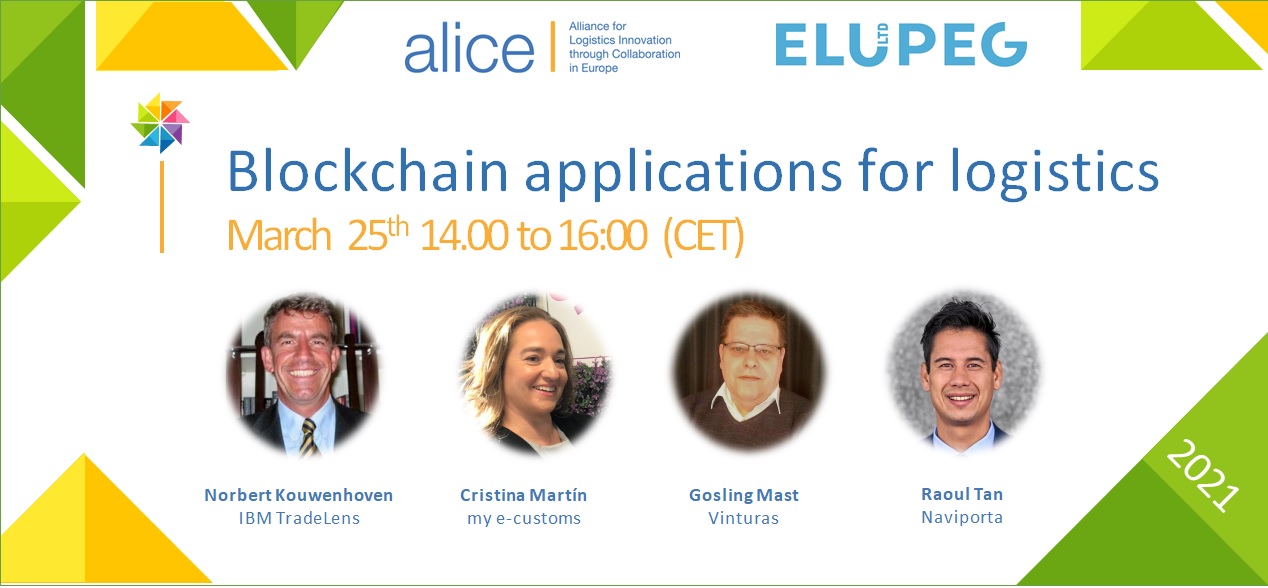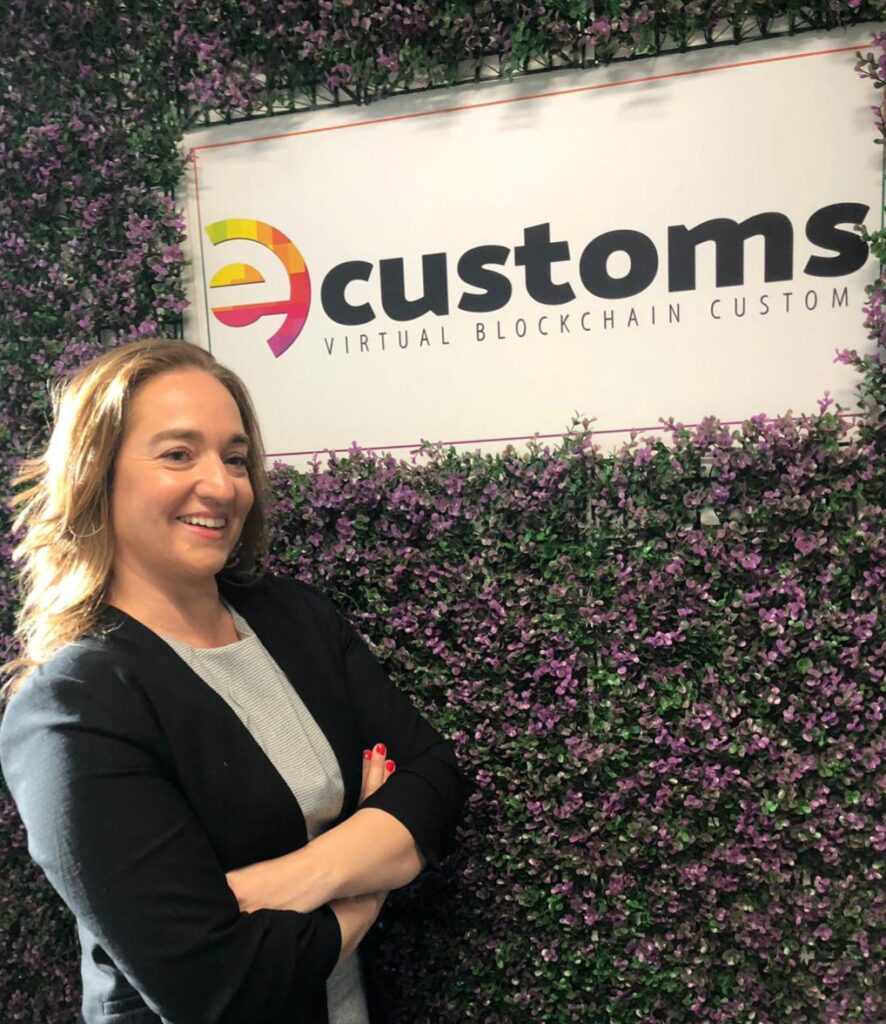Tuesday, March 16th, 2021

Blockchain has been a very important developing technology supporting logistics digitalization and the creation of digital and data sharing ecosystems.
Early on, ALICE recognized the potential and also the hype behind the technology and organized a Collaborative Innovation Day: “Blockchain applications and cases for logistics” as a starting point to get a better overview of the technology and potential use cases and applications for logistics.
After a couple of years, some applications have been established in the market and many academics and organizations claim Blockchain to be a key enabler for the Physical Internet (PI)
The ALICE Systems and Technologies for Interconnected Logistics Thematic Group in collaboration with ELUPEG launched the ALICE-ELUPEG blockchain applications for logistics group in October 2020 a group to gather initiatives in Europe and beyond, share practices and experiences among experts and address common challenges.
More than 20 leading initiatives and organizations are involved in this group currently.
In this session, participants were exposed to concrete market initiatives and the key characteristics defining blockchain as the key enabling technology for them. We will discuss to what extent blockchain fits the needs of the different use cases addressed, the main considerations to have before implementing this technology and the way forward.
You will get a medium term vision on how this technology will help evolving some business models while maybe creating troubles for others.
Welcome and introduction (14:00-14:20).
Learnings and value proposition from a practical perspective (14:20-15:20)
Moderated by: Jon Kuiper.
Norbert will explain what business value the TradeLens platform brings to the transport logistics of ocean freight. He will explain why and where blockchain technology was applied. He will use the actual traction and direction of the platform ecosystem to point out the disruption as well as the opportunities of the way forward.
Cristina will address the need to work beyond siloes and how to connect different (blockchain) platforms based on her experience in eCustoms: a Global Interoperable, Collaborative, Agnostic and Open platform, to synchronize global trade and its stakeholders, by using blockchain to have full transparency, security and immutability, without forcing anybody to change its actual stakeholders.
Gosling will share his experience in setting up the VINTURAS blockchain that covers visibility, sourcing, logistic- and warehouse operation, inspections, claim settlement, and eCMR. Gosling will share how data confidentiality and transaction validation barriers were overcome generating a true ecosystem.
Raoul will present the why and how of Naviporta and will emphasize multiple use cases (e.g. UK Customs clearance). Naviporta provides data sovereignty capabilities and decentralized data sharing infrastructure to create value in the port of Rotterdam cluster ecosystem.
Panel discussion and interactive session. Have your say! (15:20-15:50)
Panel conclusion and get engaged! ALICE-ELUPEG Blockchain Applications for Logistics Group (15:45-16:00) Jon Kuiper.
For more information and to receive a link of the recorded session, please contact: ALICE Secretariat. More information on the blockchain group: ALICE-ELUPEG blockchain applications for logistics group
 |
Cristina Martin is Chemical engineer, specialist in reactors.
Freight forwarder since 2005. Vice-president of ATEIA Madrid Coordinator of the new technologies group in Feteia and MADCARGOLAB. Co-leader of the industry and logistics forum in EJE&CON. Full-time mother of triplets, innovative, passionate and tireless worker. My favorite quote : If you want to go fast go alone , if you want to go far , go together . |